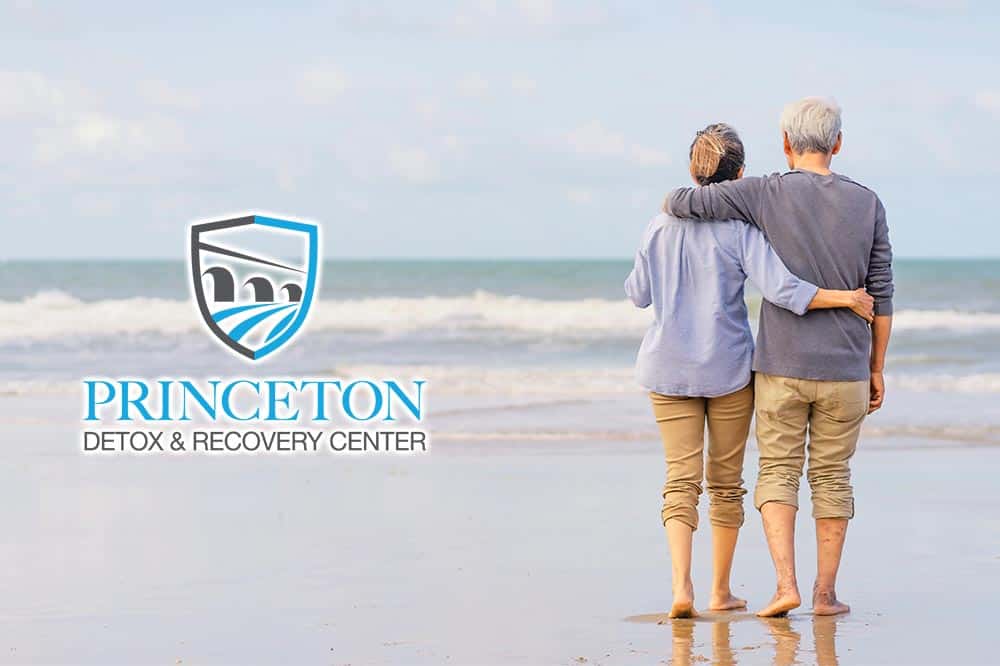Helping vs Hurting
Are You Enabling Your Husband’s Addiction?
Watching a loved one struggle with addiction is undeniably one of the most difficult things a person can go through. If you are currently faced with this unfortunate situation, you might feel as if you are backed into a corner and have completely run out of options. Watching a spouse struggle with addiction can be especially difficult. As you watch the person you fell in love with wither away to a shell of his former self, you begin to feel completely isolated and alone. You know you need to put your foot down and maintain the personal boundaries you constantly set, but you’re simultaneously afraid that maintaining these boundaries and encouraging change will push your spouse farther away — maybe even causing permanent marital damage. Because it is so difficult to know what steps to take when dealing with an addicted husband, you might inadvertently end up enabling your husband and exacerbating the symptoms of his addictive disorder. How do you know if you’re enabling your husband, and what steps can you take to make the crucial switch from enabling to empowerment?
At Princeton Detox & Recovery Center we understand how difficult it is to reach out for help when you’re dealing with an addicted husband. You might feel as if no one else is going to understand what you’re going through. You might feel a certain level of guilt or shame that prevents you from seeking professional guidance. Most of our staff members have helped a loved one through the early recovery process, and we know firsthand that making the right decisions is challenging. The good news is that help is available and recovery is possible.
What is Enabling?
The concept of enabling is generally straightforward. If you are enabling someone you love it means you are unintentionally exacerbating their substance abuse disorder by failing to set personal boundaries or by allowing them to avoid taking responsibility for their own actions.

When you enable someone you love you are essentially preventing them from dealing with the consequences of their own actions. As a spouse, you are hardwired to do what you can to keep the peace in the household. You want to do what is in your husband’s best interest without upsetting him or pushing him away. Because of this innate desire, you might accidentally be enabling when you feel as if you are doing what you can to help. In most cases, enabling behavior is completely unintentional.
We Are Here For You
Let Us Help You Heal
Our Drug & Alcohol detoxification experience is second to none.
Learn how we can help by speaking with one of our Treatment Advisors today.
Examples of Enabling Behavior
- Continuously bailing your husband out of legal or financial trouble.
- Cleaning up after your husband in order to prevent others from finding out about his substance abuse disorder.
- Making excuses for your husband’s behavior directly to his employer, coworkers, family members or friends.
- Blaming others for his negative and self-destructive behavioral patterns, or excuse him for behaving in ways that harm you, either emotionally or otherwise.
- Attributing the problem to external issues. For example, you might say something like, “If my husband wasn’t under so much pressure at work, he wouldn’t feel the need to drink so much.”
- Avoiding or ignoring the issue entirely and pretending like it simply does not exist.
- Compromising your own emotional and mental well-being in order to keep the peace.
- Taking care of all of the household chores and responsibilities in order to cater to the needs of your husband (while he is actively using or drinking).
- Attempting to control external factors in order to lessen the impact of the substance abuse disorder. For example, you might choose restaurants for your weekly date night that don’t serve alcohol in hopes that your husband won’t get drunk.
- Setting personal boundaries and then failing to maintain these boundaries, or constantly giving ultimatums that you never follow through with. You might tell your husband repeatedly that the next time he gets heavily intoxicated you are going to go stay with your parents. However, he continuously gets intoxicated without you following through with these ultimatums.
- Taking care of your husband when he is hungover or coming down off of his substance of choice.
If you have been living with your husband for a number of years, simply walking away from the situation might seem entirely unreasonable. How can you leave your spouse alone when he clearly needs your help? It is important to understand the clear distinction between enabling someone and empowering them. Empowering a person means equipping them with the tools they need to succeed and providing them with the necessary resources.
Take Care of Yourself First
Keep in mind that it is impossible to empower someone before you empower yourself. As the saying goes, “One cannot pour from an empty cup.” If you are completely emotionally and mentally exhausted, it’s going to be all that more difficult to help your husband through this difficult time. It’s absolutely essential that you take the necessary steps to help yourself first. This might look like seeking the professional help of an individual counselor with experience in substance abuse and dependence, or seeking out a 12-Step meeting that caters to the loved ones of addicts and alcoholics (specifically Al-Anon).
How to Empower Recovery
Once you take care of yourself you will be more capable of helping your husband seek and receive the professional care he needs. There are several ways you can help a loved one who is struggling with addiction begin on a journey of self-empowerment.
Ways to Empower Your Husband
- Sit down with your husband and let him know that you are serious about maintaining the personal boundaries you set moving forward. Provide your husband with the opportunity to consider the consequences and make lasting changes. Follow through with enforcing your boundaries even though it might be incredibly painful.
- Provide your husband with a comprehensive list of recovery resources in your immediate area. This list might include Alcoholics Anonymous or Narcotics Anonymous meeting information, the names and telephone numbers of several reputable individual therapists, or admission information for medical detox centers and residential inpatient treatment centers.
- Stage a professional intervention. If your husband repeatedly refuses to seek professional help this is definitely a good step to take. At Princeton Detox & Recovery Center we work closely with several experienced and licensed interventionists who we are happy to connect you with. An intervention empowers your loved one to make an instantaneous and self-empowering decision about receiving professional help.
Ready To Begin Your Detox?
Don’t let addiction control your life.
Call us today and let’s get you started on the path to a better you.
Family-Oriented Addiction Treatment
When a person enters treatment for addiction, they will not be the only one who requires help. Addiction impacts families too, and in order to thoroughly heal each member of the family must confront the negative effects addiction has had on their lives. Watching a spouse struggle with active addiction undeniably leaves a lasting impact. At Princeton Detox & Recovery Center we provide family members and loved ones with the support and guidance they need to heal and prepare for the road ahead. Our family therapy program is designed to give the family a deeper understanding of the disease model of addiction and the challenges that their loved one will experience. We provide an environment where families can speak candidly without having to feel embarrassed, resentful or guilty.
Start the Process Today
Making the choice to seek treatment is a significant decision and Princeton Detox & Recovery Center is here to provide you with guidance every step of the way. Contact us to learn more about our substance treatment programs, medically-supervised detox, insurance partnerships or to schedule a pre-admission assessment. When you or your loved one is ready to ask for help, Princeton Detox & Recovery Center will be here. Our admissions process is simple and straightforward and can be completed in as little as 15 minutes. We will provide free, no obligation insurance benefit check and help coordinate local travel to our facility. All you or your loved one has to do is ask for help, and we will take care of the rest.

Reviewed for accuracy by:
Amanda Hilzer M.Ed, CAADC, IADAC, ICCS, LCADC, CCS
Amanda graduated from Lehigh University with both an undergraduate degree in Psychology and a Master’s of Education degree in Counseling Psychology and has worked in the field of substance use disorder treatment and mental health treatment as a counselor and as a clinical manager for over 14 years.


































